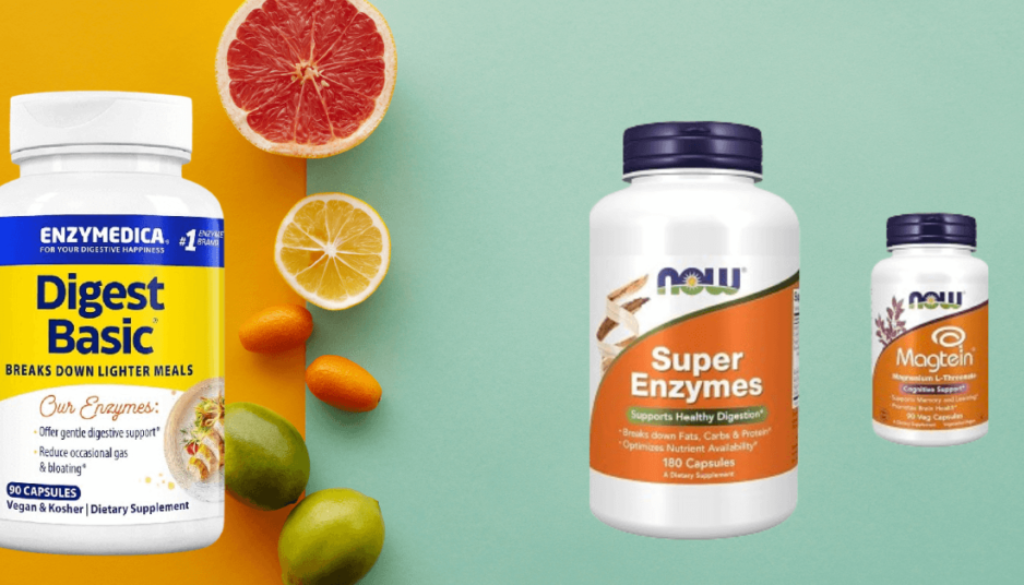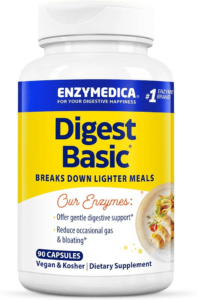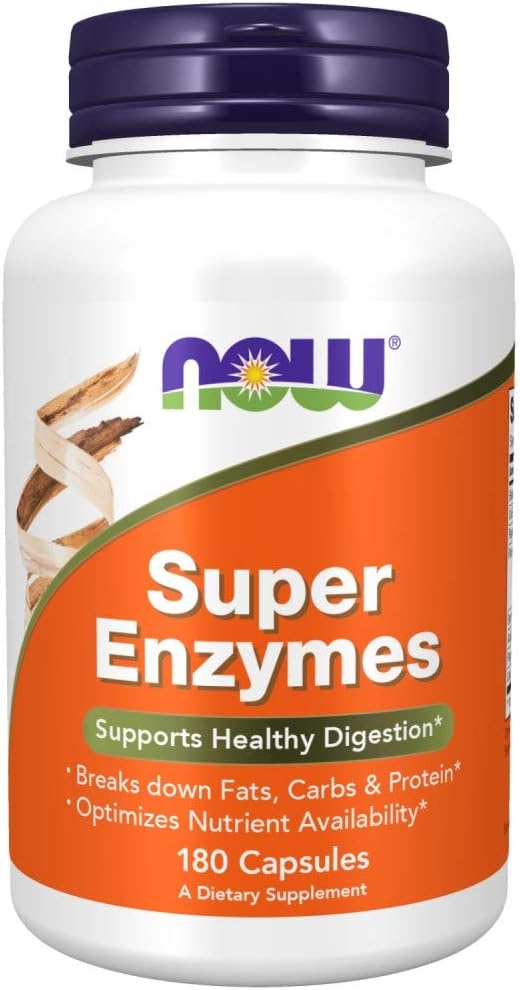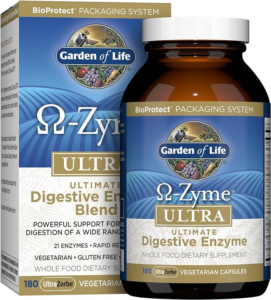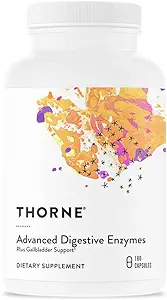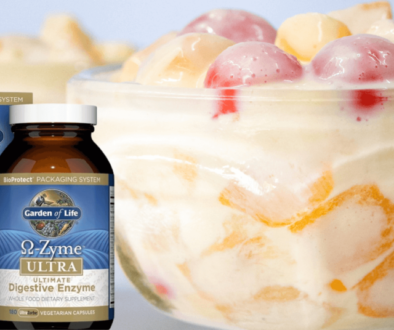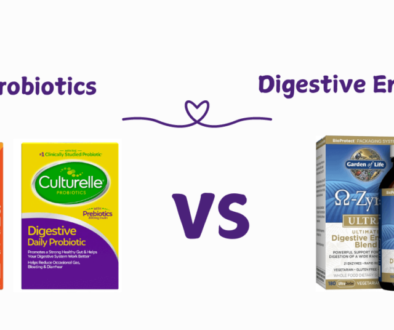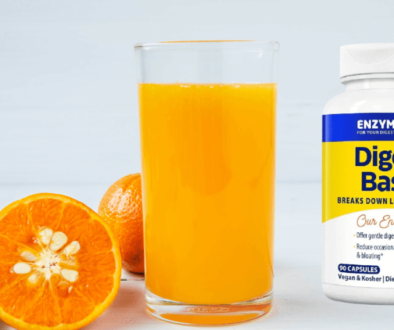Top Digestive Enzymes to Beat Bloating Effective Solutions Check Now
wwwtheshe.com Digestive enzymes 0
Feeling Bloated? Discover the Best Digestive Enzymes to Help You Feel Better
Bloating can be more than just a minor annoyance—it can turn a good day into a pretty uncomfortable one. If you’re tired of that puffed-up, heavy feeling in your stomach, you might want to consider digestive enzymes. These natural helpers work wonders by breaking down food in your stomach and intestines, potentially easing bloating and making your belly feel a lot more comfortable. Let’s dive into the top digestive enzymes that could help you feel like yourself again.
What Are Digestive Enzymes and How Do They Help?
Digestive enzymes are like little superheroes for your gut. They break down food into smaller, more absorbable pieces. When your digestive system isn’t working at its best, food can linger and ferment, leading to gas and bloating. Digestive enzymes step in to ensure everything gets properly digested, reducing the chances of gas and that bloated feeling that can really get in the way of your day.
Top Digestive Enzymes for Tackling Bloating
1. Alpha-Galactosidase
- What It Does: Imagine alpha-galactosidase as your go-to solution for those pesky carbs in beans, vegetables, and whole grains. These foods can be notorious for causing gas and bloating, but this enzyme helps break them down before they reach your intestines.
- Best For: Anyone who feels bloated after munching on fiber-rich foods.
- How to Use: Just take a supplement before or with your meals to keep bloating at bay.
Lactase
- What It Does: If dairy products leave you feeling bloated and uncomfortable, lactase might be your new best friend. It breaks down lactose, the sugar in dairy, so you can enjoy your favorite treats without the bloat.
- Best For: People who are lactose intolerant.
- How to Use: Pop a lactase pill with your dairy products to make digestion smoother and reduce bloating.
Bromelain
- What It Does: Sourced from pineapple, bromelain helps break down proteins and has some anti-inflammatory properties too. This can be especially helpful after a protein-heavy meal, reducing both bloating and discomfort.
- Best For: Those who experience bloating from eating proteins.
- How to Use: Take it with your meals to aid in protein digestion and keep bloating in check.
Papain
- What It Does: Extracted from papaya, papain helps digest proteins, making it easier for your body to process them. It’s perfect if you find yourself bloated after a hearty steak or other protein-rich foods.
- Best For: Anyone looking to improve protein digestion.
- How to Use: Take it before or during meals to help your body handle protein better and reduce bloating.
Digestive Enzyme Blends
- What It Does: These blends combine multiple enzymes like protease, amylase, and lipase, offering a one-stop solution for various digestive issues. They cover a wide range of foods and support overall digestion.
- Best For: Those who want a comprehensive solution for different types of food.
- How to Use: Take these with your meals to support digestion across multiple food groups and reduce bloating.
Tips for Choosing the Right Digestive Enzyme
When picking a digestive enzyme supplement, keep these tips in mind:
- Match Your Needs: Choose an enzyme based on what’s causing your bloating. For dairy issues, go with lactase; for fiber, try alpha-galactosidase.
- Check Enzyme Activity: Make sure the enzyme activity levels are high enough to be effective.
- Consider Extra Ingredients: Some supplements come with probiotics or herbs for extra digestive support.
Common Questions About Digestive Enzymes
1. How soon will I feel better?
Many people notice relief within a few hours to a few days of using digestive enzymes. Just remember, consistency is key—follow the recommended dosage for the best results.
2. Are there any side effects?
Digestive enzymes are generally safe, but you might experience mild side effects like diarrhea or stomach cramps. If you have health conditions or are taking other medications, it’s a good idea to check with your doctor first.
3. Can they interact with other medications?
Yes, digestive enzymes can interact with some medications. If you’re on medication for chronic conditions, consult with your healthcare provider.
4. How should I take them?
Most enzymes work best when taken with meals to support digestion. Just follow the dosage instructions on the label.
Top 4 Digestive Enzyme Supplements to Consider
Wrapping Up
Digestive enzymes can make a real difference in managing bloating and supporting your overall digestive health. Whether you’re dealing with lactose intolerance, high-fiber foods, or just need a little extra help with protein digestion, there’s likely an enzyme that can provide the relief you need. By selecting the right supplement and using it correctly, you can enjoy your meals without the discomfort. And if you’re unsure which enzyme is best for you, don’t hesitate to consult with a healthcare professional. Here’s to feeling more comfortable, less bloated, and getting back to enjoying life’s simple pleasures!
Related articles on probiotics, digestive enzymes, and gut health tips.
Unlock the Full Potential of Digestive Enzymes: All you need to know for Optimal Health
